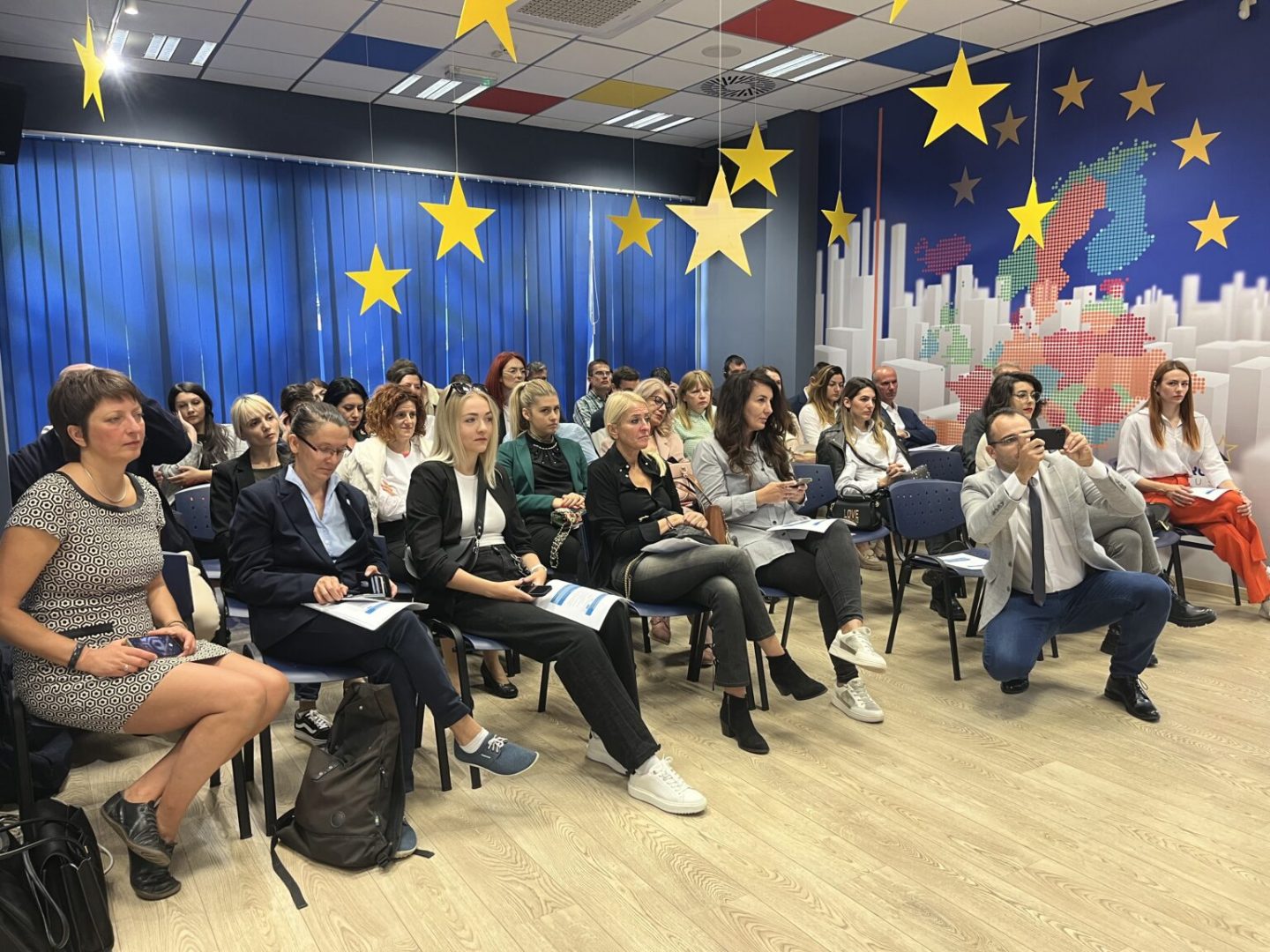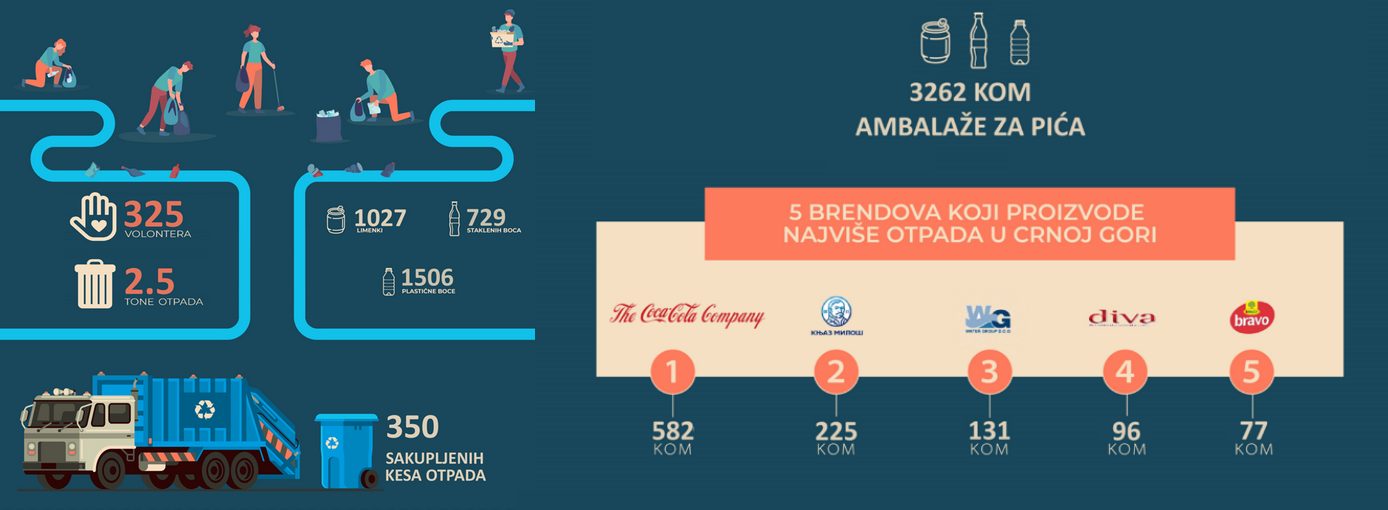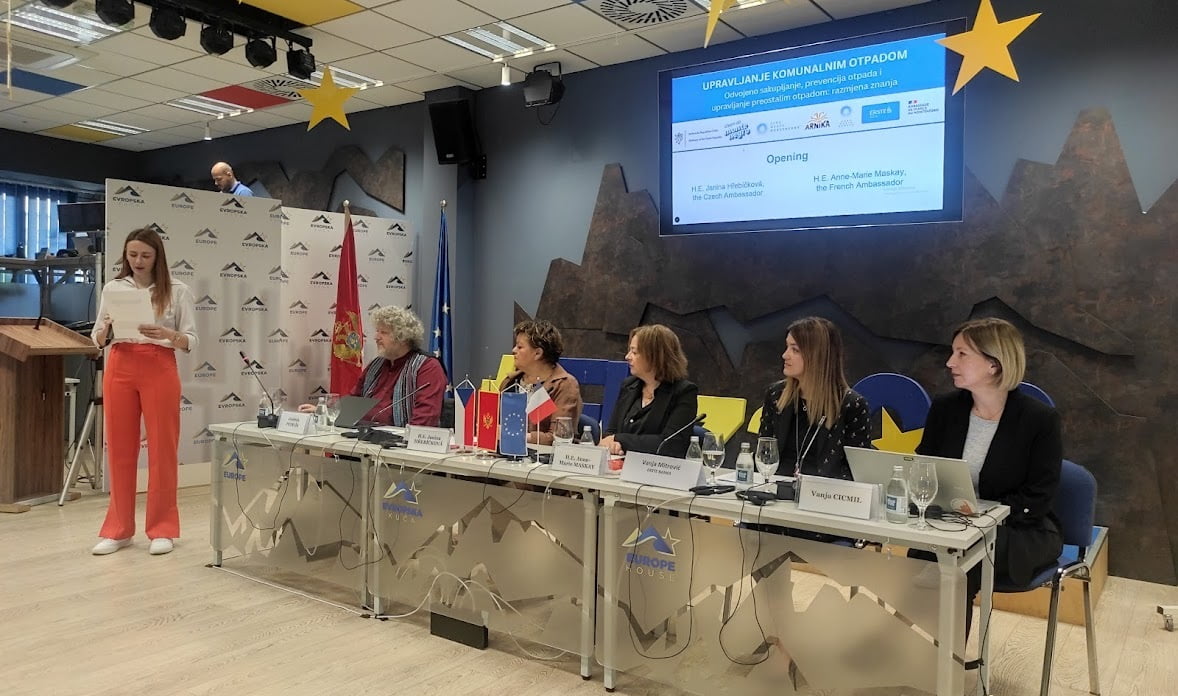On 17th of October 2023 the Municipal Waste Management Conference was held at the Europe House, with the theme “Separate Collection, Waste Prevention, and Management of Residuals: Knowledge Exchange,” The conference was organized by the Check Embassy in Montenegro and local NGO Zero Waste Montenegro, hosting experts Mr. Jindřich Petrlík, from the Czech NGO Arnika, and Mr. Enzo Faviono, from Zero Waste Europe. It was attended by diplomats and representatives of relevant public and international institutions, municipalities and experts to explore essential aspects of municipal waste management.
The conference commenced with welcoming remarks from H.E. Janina Hřebíčková, the Czech Ambassador, and H.E. Anne-Marie Maskay, the French Ambassador in Montenegro. Their remarks set the tone for a day of collaboration and commitment to addressing environmental challenges at the municipal level. Vanja Mitrovic, the Director of Operational Risk, ICT Risk and ESG Department from Erste Bank, who was the main sponsor of the Clean up Montenegro this year alongside the French Embassy, pointed out the importance of introducing ESG standards in their business.

Clean up Montenegro Brand Audit Results 2023
The opening speeches were followed by the presentation of Ms. Vanja Cicmil from Zero Waste Montenegro, who presented the results and findings of Clean up Montenegro Brand Audit 2023, emphasizing the significance of identifying and holding brands responsible for their contributions to waste pollution, but also the shared responsibility of other parties – EU and national decision-makers and local authorities, producers and HoReCa sector.
Earlier in September, for International Coastal Clean-up Day, local communities, NGOs and citizen movements from the Clean Up Montenegro network, together with over 300 volunteers, conducted clean-ups and brand audits all across the country, collecting and categorizing plastic waste to identify the brands responsible for generating this waste. Over 2.5 tons of waste was collected, and 3262 pieces of beverage packaging were audited. The brands most found were The Coca-Cola Company, Knjaz Milos and Water Group. These actions serve to shed light on the extent of the plastic pollution problem in the country, encourage responsible consumer choices, and potentially put pressure on brands to adopt more eco-friendly packaging and materials. The data gathered through brand audits is used to support advocacy efforts and push for policy changes related to plastic waste management and reduction.

Lessons from the Czech Republic: Municipal Waste Management, Waste Incineration and Environmental Impact
Mr. Jindřich Petrlík shared insights into the Czech Republic’s municipal waste management practices, offering valuable lessons for Montenegro and other regions seeking to enhance their waste management, with a particular focus on the health and environmental dangers of the ‘waste-to-energy’ approach, and its ‘lock-in’ effect. He presented the environmental impact of waste incineration from both the Czech and international perspectives.

Zero Waste Initiatives: Sustainable Waste Management in a Circular Economy Context
Mr. Enzo Favoino discussed zero waste programs at the municipal level, highlighting proactive approaches to waste reduction, sustainable waste management, and flexible MRBT systems as a bridge strategy to address the residual waste at the municipality level. His presentation centered on sustainable waste management in line with circular economy principles and climate policy.
The conference served as an important step toward fostering sustainable solutions and addressing municipal waste management challenges, including separate collection, waste prevention, and residual management. The insights and experiences shared during this event should help guide Montenegro and other regions toward a greener and more responsible municipal waste management future and progress in the pursuit of effective and sustainable waste management solutions.
